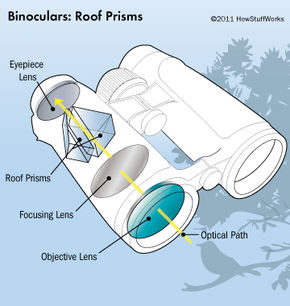The Significance of Binoculars in Education And Learning and Scientific Research Study: How These Optical Instruments Add To Understanding and Expedition
The assimilation of field glasses into academic setups and clinical research is typically ignored, yet their payment to boosting empirical abilities is considerable. In techniques varying from ecological scientific research to astronomy, field glasses offer as crucial devices that advertise query and essential reasoning.
Enhancing Observational Abilities
In academic and research study settings, making use of binoculars significantly enhances observational abilities amongst trainees and experts alike. These optical tools assist in a deeper understanding of far-off topics, allowing users to observe details that would certainly or else stay unseen. By employing field glasses, learners can take a look at wild animals, huge phenomena, and geological developments, promoting a much more extensive link to the subject matter.
Binoculars function as crucial devices in field researches, urging students to involve proactively with their environment. Via boosted observation, they can collect information much more effectively, leading to boosted analytical abilities. This hands-on experience enables the development of essential thinking, as students need to translate what they see and connect it to theoretical knowledge.

Bridging Concept and Practice
Observational abilities created via making use of binoculars naturally bring about an extra profound integration of theoretical understanding with functional application. By involving in straight monitoring, students can transform abstract concepts into concrete experiences. This synergy promotes a much deeper understanding of scientific principles as students link theoretical frameworks with real-world phenomena.
For instance, when researching avian biology, students can apply their understanding of bird composition and habits with the lens of field glasses, observing attributes such as plumage variant, feeding behaviors, and migratory patterns. This direct engagement not only reinforces theoretical concepts yet additionally grows critical reasoning and logical abilities.
Additionally, using field glasses encourages students to create theories based on their observations, thus enhancing their clinical questions abilities. They can actively test these hypotheses in the area, leading to an extra experiential discovering atmosphere that promotes inquisitiveness and expedition.
In significance, field glasses work as an important device in connecting the gap in between classroom understanding and fieldwork - Binoculars. They equip students to come to be energetic participants in their education, motivating a holistic technique to recognizing the natural world and its intricacies. Hence, the combination of theory and practice is crucial for promoting informed and involved learners
Applications in Environmental Science
Making use of binoculars in ecological science boosts the ability to observe and examine communities with better accuracy. These optical tools are essential for carrying out field research studies, enabling researchers to check wildlife populations, examine plant health, and assess environment problems without interrupting the natural setting. Binoculars help with the recognition of varieties at various distances, allowing researchers to look at here now collect crucial information on biodiversity and actions.
In eco-friendly research, binoculars are vital devices for ornithologists studying avian habits and movement patterns. They make it possible for scientists to record observations over long periods, adding to valuable longitudinal research studies - Binoculars. Furthermore, field glasses play an essential duty in environment assessments, as they allow for the comprehensive observation of plant communities and their communications within communities
Ecological teachers additionally profit from field glasses, as these tools boost experiential learning possibilities. Pupils can involve straight with their environments, promoting a deeper gratitude for ecological systems. By including field glasses into educational programs, teachers can influence the following generation of ecological scientists.
Role in Astronomy Education
Using field glasses in astronomy education and learning supplies an easily accessible entrance for trainees and lovers to discover holy phenomena (Binoculars). Unlike large telescopes, field glasses are mobile, easy to use, and relatively low-cost, making them an excellent initial tool for observing the night skies. Trainees can easily involve with the cosmos, fostering a hands-on understanding experience that enhances their understanding of expensive concepts
Binoculars permit users to observe a selection of celestial items, consisting of the Moon, planets, and star collections. Importantly, binoculars offer as a bridge to much more complicated astronomical instruments, supplying foundational experiences that can spark deeper interest in the area.
In academic setups, directed binocular sessions can advertise group partnership and discussion, enhancing the discovering experience. The common experience of observing heavenly bodies can cultivate a sense of community among Read Full Article students. On the whole, field glasses play a vital function in debunking astronomy, making it friendly and interesting for individuals in any way degrees of education.

Inspiring Inquisitiveness and Inquiry
Field glasses not just promote the monitoring of celestial phenomena however likewise stir up a sense of interest and questions among trainees. By giving a closer check out remote objects, binoculars motivate students to ask questions and explore the atmosphere around them. This device changes easy knowing into an active, engaging experience, promoting a much deeper understanding of scientific concepts.
When trainees use field glasses to observe wild animals, landscapes, or expensive objects, they develop observational abilities that are critical for scientific inquiry. The act of focusing on specific details triggers them to why not look here develop hypotheses, carry out investigations, and draw final thoughts based on their observations. This process not only improves their vital believing capabilities however also supports a lifelong interest for exploration.
Furthermore, binoculars can link the space between academic understanding and real-world application. Eventually, the use of field glasses in academic settings offers as a catalyst for inquisitiveness, equipping students to seek knowledge with excitement and promoting a sense of marvel about the globe around them.
Conclusion
In recap, binoculars offer as crucial tools in education and learning and scientific study, substantially enhancing empirical abilities while connecting the void between academic understanding and practical application. Their varied applications in fields such as ecological science and astronomy highlight their significance in cultivating curiosity and query among trainees. By helping with thorough evaluations of remote topics, binoculars not just motivate the next generation of researchers yet likewise grow an extensive gratitude for expedition and the clinical method.